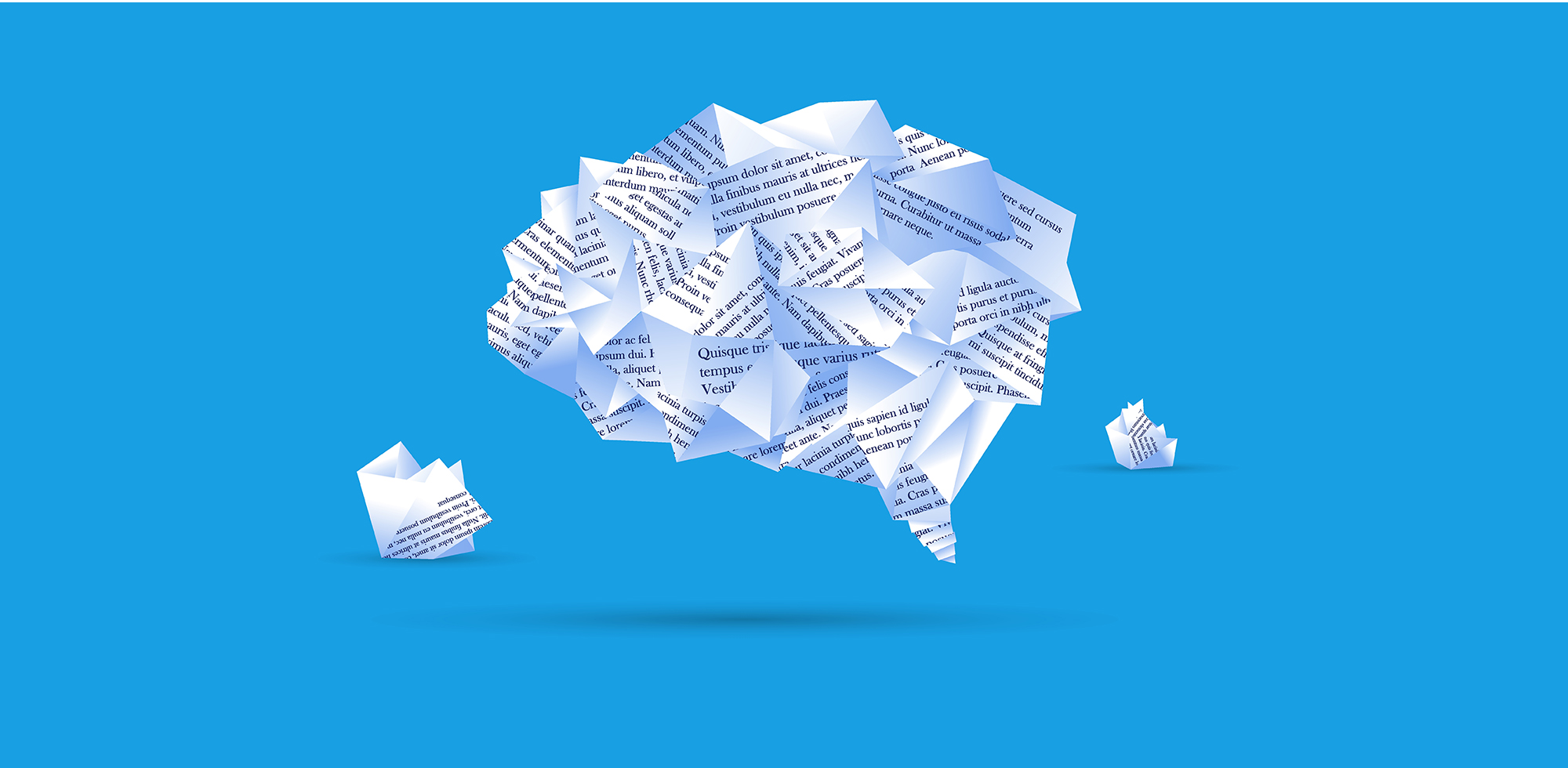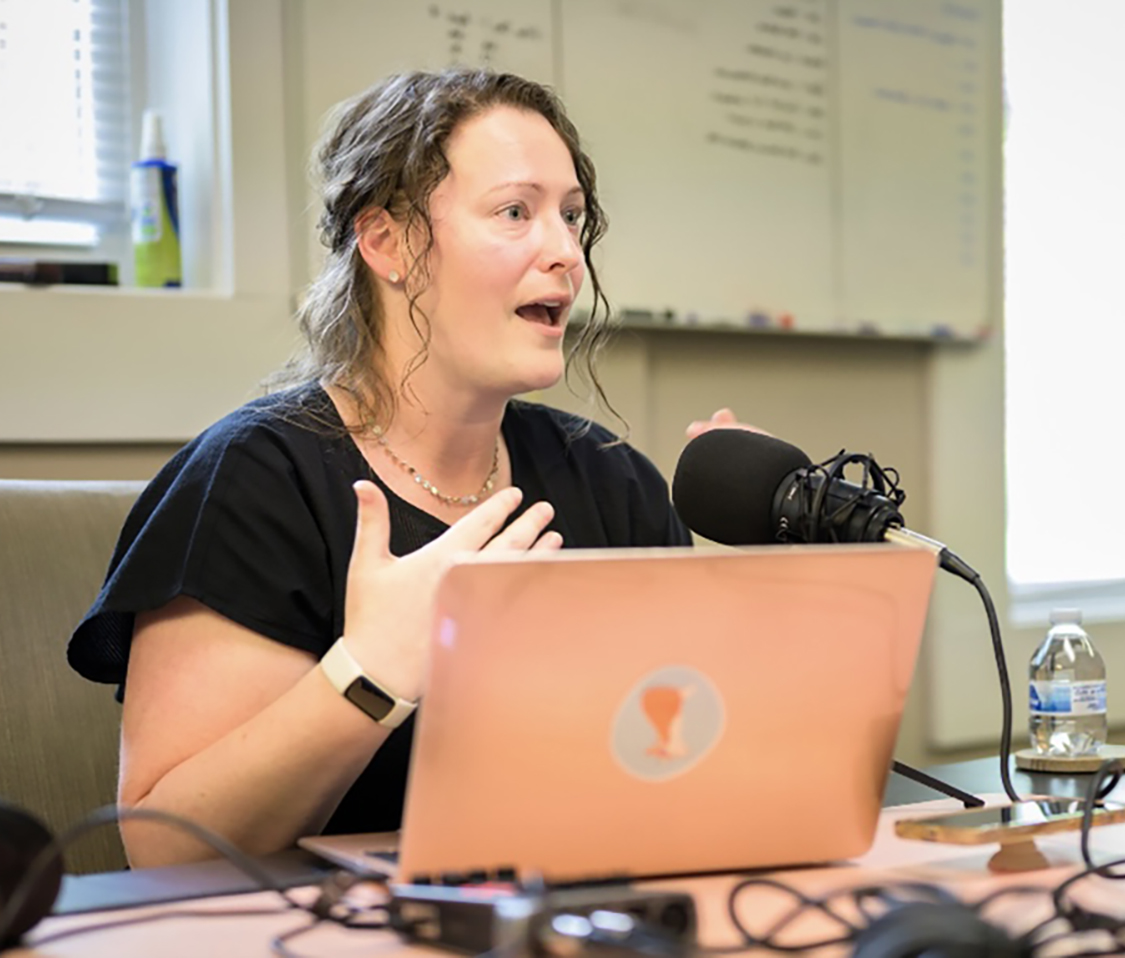A career changer discovers that persistence and a University of Chicago certificate can open doors to the publishing world.
When Helen Armalas graduated in 2011 with a degree in art history, the job market offered little by way of creative opportunities. She worked first in her family’s steel sales business, then in New York in office management and accounting, and eventually as an executive assistant in wealth management and technology. “I was very unhappy,” she says. “It wasn’t intellectually stimulating. It just didn’t match me at all.”
The pandemic proved a turning point, prompting her to reassess her career path and explore new possibilities.
“I’ve always loved writing. I’ve always loved reading. I’ve always just wanted to work with words. I just never thought I could independently support myself pursuing it as a career.”
Looking for a way forward, she saw that the bright spots in her executive assistant roles had been writing and editing tasks, and she wondered if she could turn those skills into a full-time pursuit. A few searches led her to the University of Chicago’s Editing certificate. What clicked with her immediately was that she could start right away.
“If I wanted to do a master’s, it would take at least six months just to get into a program,” she says. “I wanted to do this fairly fast.” Her urgency paid off and within weeks she was enrolled. She was especially excited to dive into The Chicago Manual of Style in its own backyard.
In short time, the coursework overturned everything she’d previously imagined editing to be. It even showed her how freelance book editing—something she’d never thought possible—was a real option.
“My idea of editing was basically rewriting people’s work,” she says. What she discovered instead was a profession demanding both precision and creativity, where refining an author’s work meant improving everything from consistency to flow while still preserving the original voice and intent. “Editing was a humbling process at first,” she says. “My grammar skills needed to be expanded. It really came down to learning how to use the Manual, not memorize it, but navigate it.”
Two courses were key to her transformation: Advanced Manuscript Editing, where she edited an entire manuscript and created style sheets, and Freelancing in Medical Writing and Editing, which convinced her that full-time freelancing was possible.
“If I’d come out of the program not having edited an entire manuscript, I doubt I would have had the confidence going into my first professional manuscript,” she says. “When you’re doing it in class, you’re allowed to make mistakes, which is definitely not allowed once you’re in a professional setting.”
But perhaps the most valuable lesson came from her freelancing instructor’s emphasis on persistence. After completing the program, Armalas started what she calls “a numbers game” that entailed systematically cold-emailing publishers with pitches emphasizing her University of Chicago credentials. She tracked hundreds of contacts in a detailed spreadsheet.
“Timing is everything,” she says. “You need to find somebody at the right exact time. Most production editors already have copyeditors. But when they have a need for it, they’re going to reply to you. So it’s partly luck, but your odds go way up the more publishers you’re reaching out to.”
The strategy worked. Her first manuscripts came from editors who needed someone immediately. With Armalas still building her client base, she was ready to deliver. Within nine months, she went from sending hundreds of cold emails to finding steady work from publishers including Penguin, Macmillan, Bloomsbury, and Seven Stories Press.
She also secured work from university presses—including the University of Nebraska Press and Penn State University Press—an avenue she recommends for newcomers since contact information is openly listed on their websites. Armalas notes that academic journal work can offer a reliable income stream because journal managers typically assign entire publications to a single copyeditor, which means regular work as new issues roll out quarterly or annually.
Today, Armalas juggles five or six projects simultaneously, copyediting and proofreading both fiction and nonfiction. With repeat clients keeping her booked, she no longer needs to pitch for work. The cherry on top? Sometimes she finds herself proofreading books she would’ve bought anyway.
“I’m very grateful,” she says, contrasting her current life—working from home with her two dogs while reading manuscripts that excite her—with those years in corporate offices. “Even though I sometimes work more hours now, I’m doing what I want to do.”
For editors trying to break into publishing, Armalas repeats her core lesson: “It’s a numbers game. The more people you reach out to, the more likely somebody will respond to you.” That, and one more thing: “Always put the University of Chicago name in your pitch. It has such good name recognition.”

Earn a Certificate That Opens Doors
At the most recognized, comprehensive, and reputable non-credit Editing certificate program in the nation, you will join a community like no other.
Learn more




